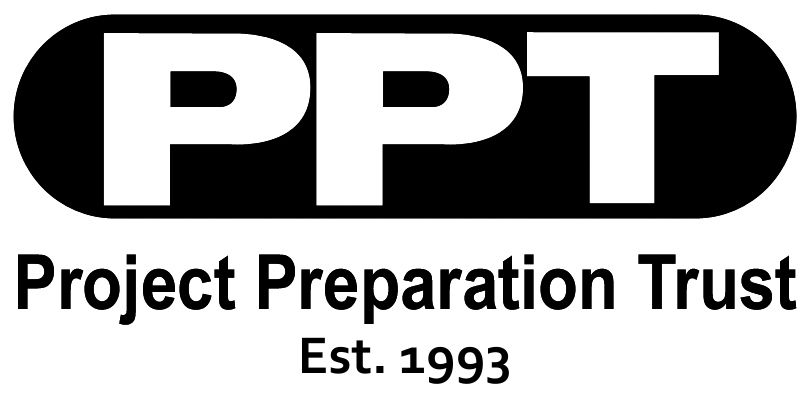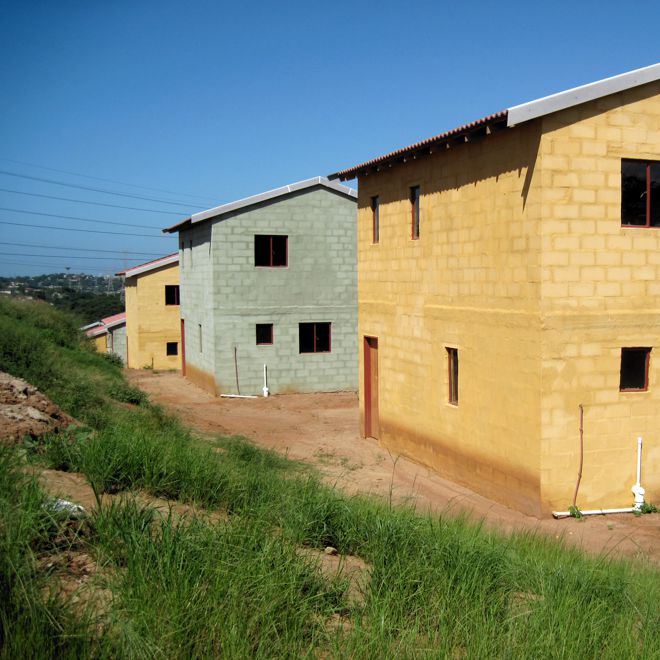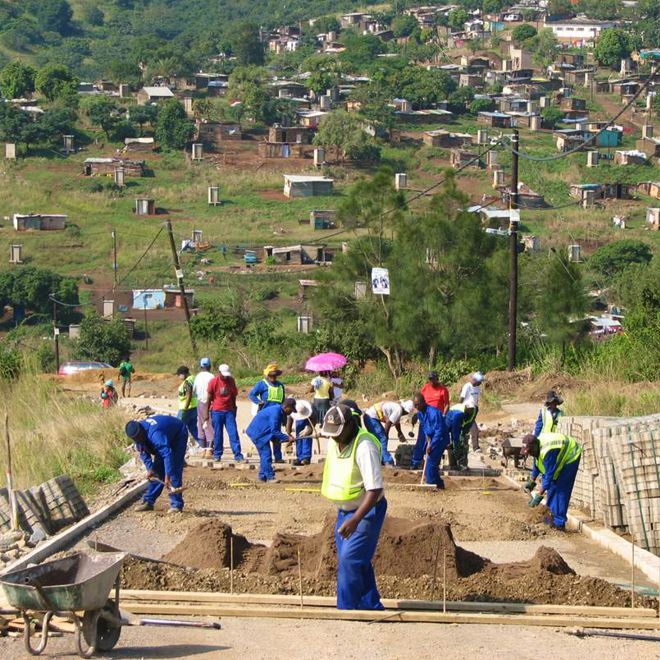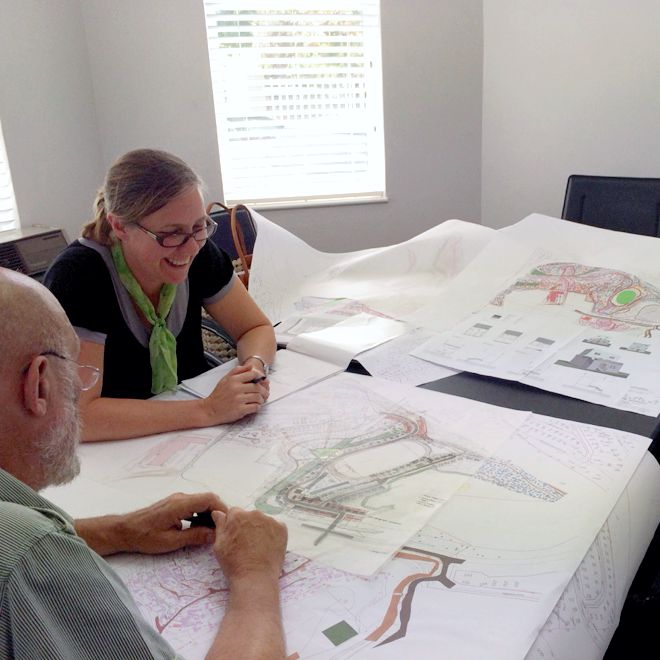PPT recently completed a ‘rethink’ of the national housing programme for the National Department of Human Settlements’ (NDHS) Research Directorate in collaboration with Urban LandMark (ULM). The final report was submitted in November 2012 although none of its contents are publically released. It will however serve as one of many possible inputs into a Green Paper on housing which is likely to be developed during 2013.
The Project arose from concerns within Government as to the current trajectory and effectiveness of the national housing programme which are shared by many within civil society and the private sector and relate principally to what is typically referred to as the ‘un-sustainability’ of the current programme, not only in respect of its affordability to the fiscus but also in respect of the nature of the socio-economic benefits and leverages which are being achieved. Despite increasing housing expenditure and extensive delivery of state-subsidised houses, significant backlogs persist, access to economic opportunities and social facilities is often not improving, subsidised housing quality is variable and there is a prevailing sense of beneficiary passivity. There is also broad-based recognition that certain fundamental human settlement challenges are not being adequately addressed or accommodated such as informality, spatial restructuring, land-access for the poor, and affordable rental housing. These persistent challenges are recognised as posing not only developmental but strategic threats to South Africa if they are not more effectively and rapidly responded to.
Against this backdrop, the Project was set the ambitious goal of rethinking the national housing programme yet it was also limited in its scope and budget and based only on a desktop review of existing materials and bodies of work. It was therefore seen as a ‘think-piece’ and one of many inputs into the afore-mentioned Green Paper process.
The research report was arranged in four main parts: an ‘Introduction’; a ‘Situational Analysis’; a ‘Problem Statement’ and a ‘New Housing Framework’. It also contained, as Annexures, three source reports produced by the project team. These assessed the current housing programme; profiled selected local and international experience; and considered various dimensions of the future which needed to be taken into consideration.
Whilst its content cannot be released, the proposed new Framework proposed by the Project Team in many respects represents a significant if not radical departure from the status quo in several key respects.
The members of the core professional team were: Mark Misselhorn (PPT – Project Leader); Mark Napier (Urban LandMark – Research Leader); Susan Carey (independent consultant – researcher); Susanna Godehart (independent consultant – researcher); Sarah Charlton (independent consultant – researcher); and Ishmael Mkhabela (independent consultant – workshop facilitator). In addition, the following experts served on the project’s Reference Group: Philip Harrison, Edgar Pieterse, Dan Smit, Stephen Berrisford, Kecia Rust, and S’bu Zikode (with additional stakeholder representation determined by the NDHS during a variety of meetings).




